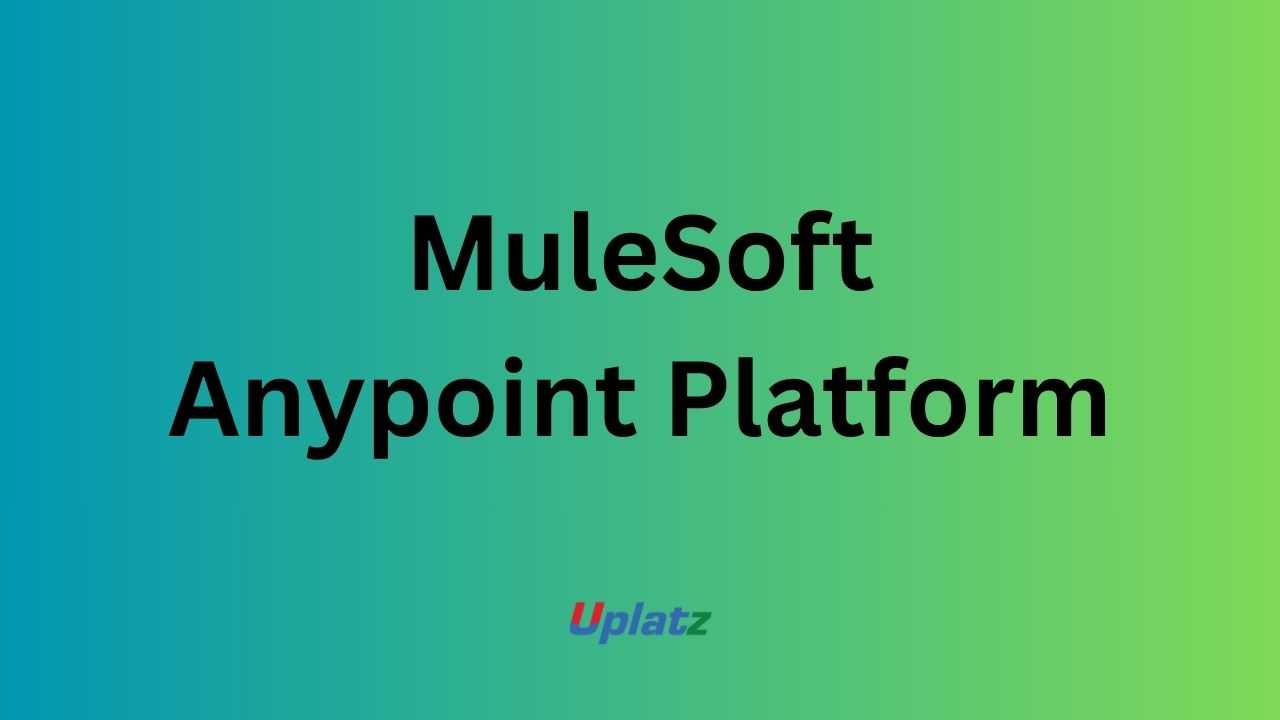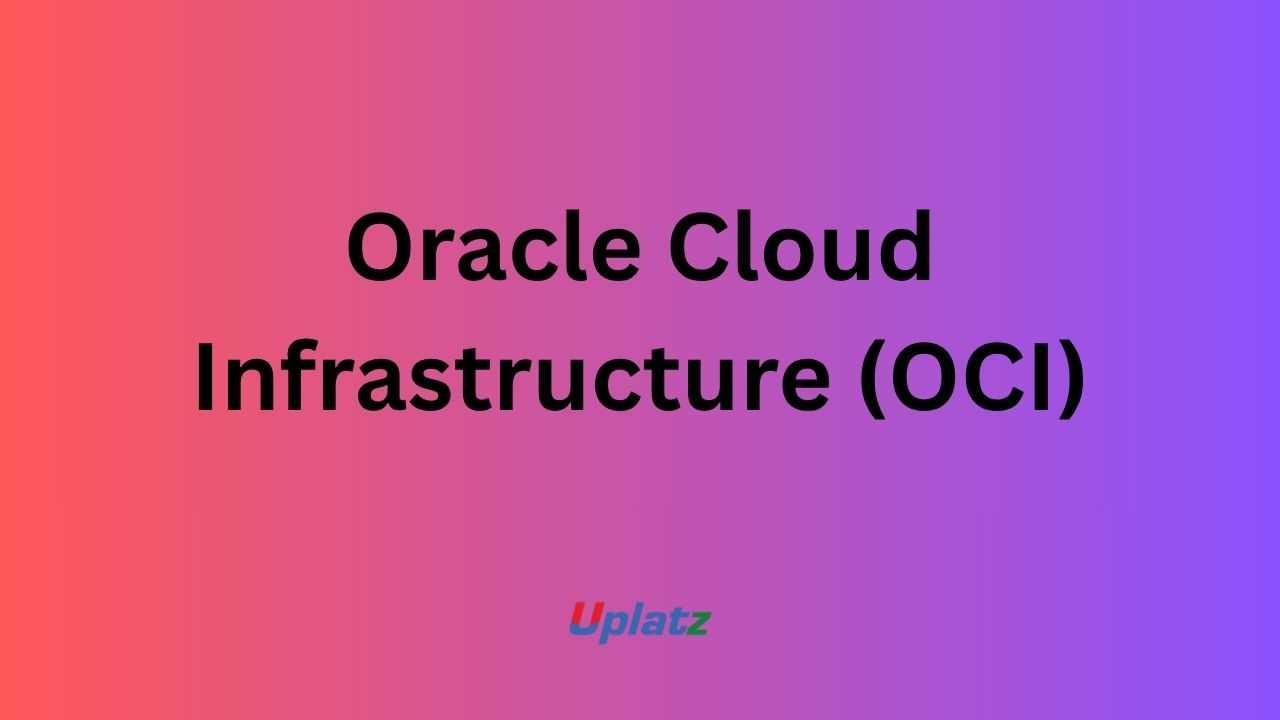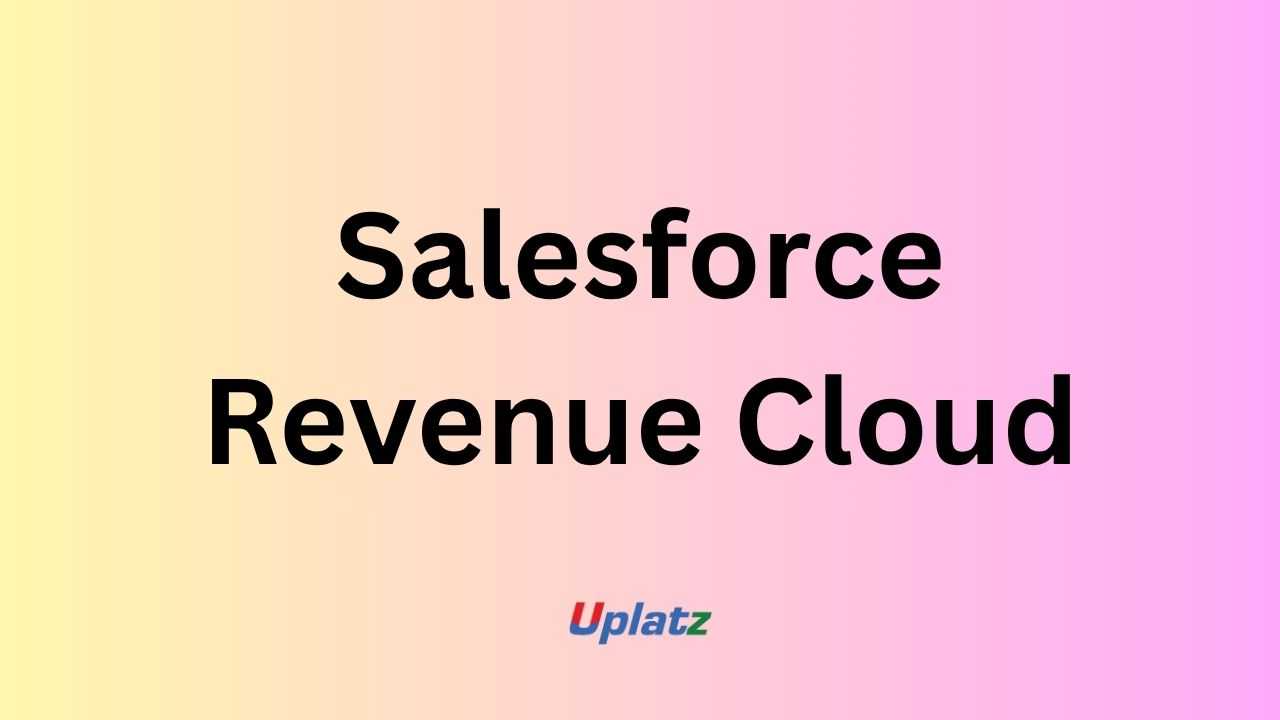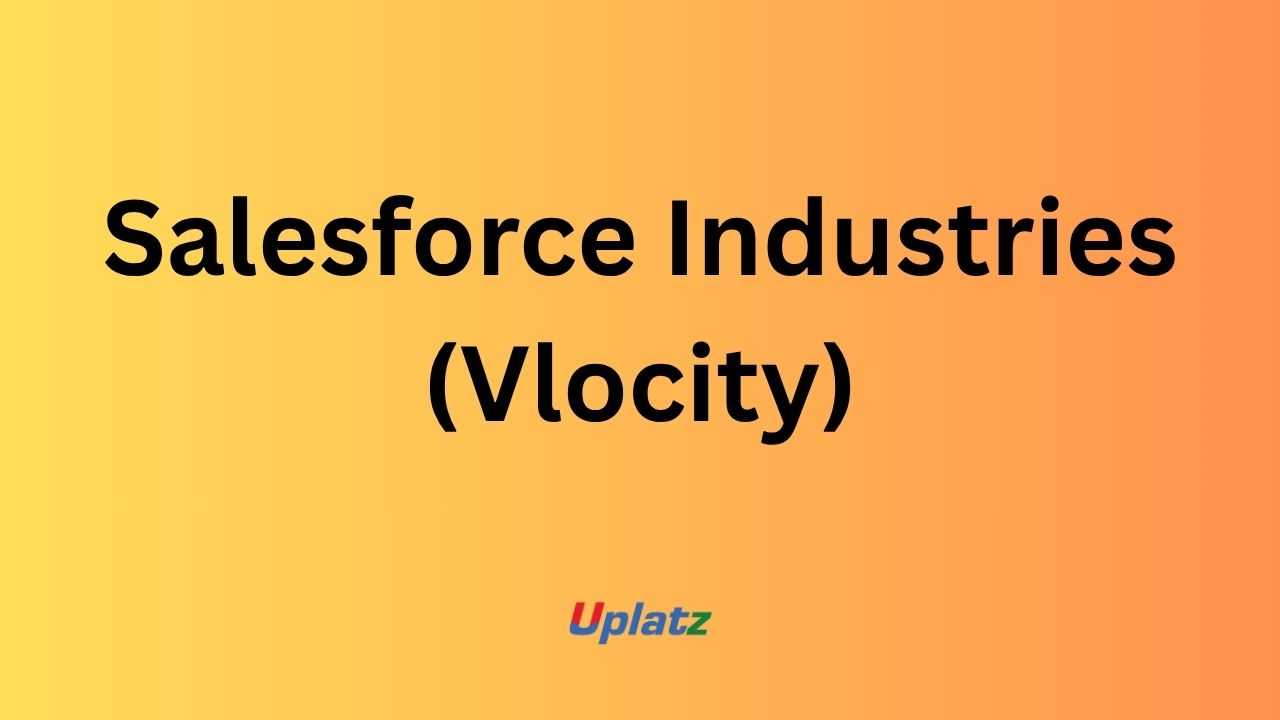MuleSoft Anypoint Platform (Salesforce Integration)
Master API-Led Connectivity and Enterprise Integration with MuleSoft and Salesforce Price Match Guarantee
Full Lifetime Access
Access on any Device
Technical Support
Secure Checkout
Course Completion Certificate
Price Match Guarantee
Full Lifetime Access
Access on any Device
Technical Support
Secure Checkout
Course Completion Certificate
 97% Started a new career
BUY THIS COURSE (
97% Started a new career
BUY THIS COURSE (GBP 12 GBP 29 )-
 86% Got a pay increase and promotion
86% Got a pay increase and promotion
Students also bought -
-

- Oracle Cloud Infrastructure (OCI)
- 10 Hours
- GBP 12
- 10 Learners
-

- Salesforce Revenue Cloud – CPQ & Billing Mastery
- 10 Hours
- GBP 12
- 10 Learners
-

- Salesforce Industries (Vlocity) – Industry-Specific Solutions
- 10 Hours
- GBP 12
- 10 Learners

MuleSoft Anypoint Platform is one of the most powerful integration and API management solutions used by global enterprises to connect applications, data sources, and devices across cloud and on-premise environments. As organizations move toward digital transformation and distributed architectures, MuleSoft has become essential for building scalable, reusable, and secure integrations that enable seamless data flow across business systems.
This Uplatz hands-on training course provides end-to-end mastery of MuleSoft’s integration capabilities — including API-led connectivity, Anypoint Studio, DataWeave transformations, RAML API design, error handling, orchestration, monitoring, and Salesforce integration patterns. Designed for developers, architects, and IT professionals, this course equips learners with the skills to design, build, deploy, and manage enterprise-grade APIs that power connected digital ecosystems.
🔍 What is MuleSoft Anypoint Platform?
MuleSoft, now part of Salesforce, provides the Anypoint Platform — a unified integration and API management suite that allows organizations to:
-
Design APIs
-
Build integrations
-
Orchestrate data flows
-
Manage access and security
-
Monitor usage and performance
-
Reuse existing assets
The platform supports both cloud-based and on-premise deployments, making it suitable for hybrid environments and large enterprise architectures. Anypoint Platform includes tools such as:
-
Anypoint Studio: Visual integration development environment
-
API Designer: RAML/OAS-based API modeling tool
-
Anypoint Management Center: Centralized API governance, monitoring & analytics
-
API Manager: Policy management, access control, and rate limiting
-
Anypoint Exchange: Asset repository for APIs, connectors, and templates
-
Mule Runtime Engine: High-performance engine for executing integration flows
Together, these components help enterprises unify data and streamline processes across applications like Salesforce, SAP, Oracle, Workday, AWS, Azure, databases, and third-party services.
⚙️ How MuleSoft Works
MuleSoft uses an API-led connectivity architecture, which organizes integrations into three layers:
-
System APIs
Expose core systems (DBs, ERP, legacy apps) in a consistent, reusable way. -
Process APIs
Orchestrate and transform data coming from multiple systems. -
Experience APIs
Deliver data to specific channels like mobile apps, portals, or Salesforce UI.
This layered model increases scalability, reusability, and governance — reducing maintenance and development time.
MuleSoft flows are built in Anypoint Studio using drag-and-drop components. Developers can:
-
Connect REST/SOAP services
-
Integrate databases
-
Use prebuilt connectors (Salesforce, SAP, HTTP, File, SMTP, etc.)
-
Transform data using DataWeave, MuleSoft’s powerful data transformation language
-
Apply error-handling and retry logic
-
Secure APIs using OAuth, Basic Auth, rate limiting, and client ID enforcement
Once integrations are deployed, API Manager provides control over access, analytics, performance, and lifecycle management.
🏭 How MuleSoft Is Used Across Industries
MuleSoft is trusted by enterprises across multiple industries because it integrates complex, siloed systems and enables real-time connectivity.
Common industry applications include:
-
Banking & Financial Services
Customer onboarding, KYC verification, loan processing, payment integration -
Insurance
Claims integration, policy management, core system modernization -
Healthcare
EHR/EMR integration, patient data interoperability, HL7/FHIR transformation -
Retail & E-Commerce
Order management, inventory synchronization, e-commerce platform integration -
Telecommunications
Billing integration, service activation, partner ecosystem connectivity -
Government & Public Sector
Data exchange between departments, public-facing APIs, secure information sharing -
Manufacturing
Supply chain data flow, ERP-system integration, IoT connectivity
Companies like Netflix, Coca-Cola, Unilever, McDonald’s, AT&T, and Walmart rely on MuleSoft to modernize legacy systems, automate processes, and deliver scalable digital solutions.
🌟 Benefits of Learning MuleSoft
Learning MuleSoft provides a significant competitive advantage:
-
High Demand & High Salary
MuleSoft developers and integration architects are among the highest-paid tech professionals. -
Future-Proof Skills
API-led connectivity is the backbone of modern enterprise architectures. -
Cross-Platform Integration Skills
Learn to integrate Salesforce, SAP, AWS, Oracle, Workday, and more. -
Low-Code & Developer-Friendly Environment
Visual flows + DataWeave + reusable assets accelerate development. -
Cloud & On-Premise Flexibility
Work across hybrid, distributed, and containerized environments. -
Strong Career Paths
Roles include:-
MuleSoft Developer
-
Integration Architect
-
API Engineer
-
Platform Administrator
-
Solution Consultant
-
-
Enterprise-Grade Capabilities
Learn security enforcement, API governance, and operational monitoring — all essential for enterprise IT.
Mastering MuleSoft makes you a key contributor in digital transformation projects.
📘 What You’ll Learn in This Course
This course takes a complete, hands-on approach covering:
-
Introduction to MuleSoft & Anypoint Platform architecture
-
API-led connectivity and integration patterns
-
RAML API design using API Designer
-
Building flows in Anypoint Studio
-
Connecting to Salesforce, SAP, databases, and third-party APIs
-
Designing REST & SOAP integrations
-
DataWeave 2.0 transformation (JSON, XML, CSV, Java, etc.)
-
Exception handling, logging, and batch processing
-
Using connectors, listeners, routers, and processors
-
Deployment using CloudHub, Runtime Fabric, or hybrid options
-
API Manager – policies, throttling, OAuth, analytics
-
Anypoint Exchange – asset publishing and reuse
-
CI/CD pipelines and DevOps with MuleSoft
-
Best practices for high-performance integrations
By the end, learners will be able to build complete integration solutions using MuleSoft’s best practices.
🧠 How to Use This Course Effectively
To get the maximum value out of this course:
-
Start with Architecture – Understand Mule runtime, API-led layers & Anypoint components.
-
Follow Anypoint Studio Labs – Build APIs step-by-step using guided examples.
-
Practice DataWeave Daily – Transformation is the heart of integration.
-
Experiment with Salesforce & DB Integrations – Learn real-world connection patterns.
-
Implement Error Handling – Build resilient flows with retries, on-error scopes & logging.
-
Use API Manager – Apply security policies and track API analytics.
-
Deploy and Test – Deploy flows to CloudHub and test with Postman or Mocking services.
-
Complete the Capstone Project – Integrate Salesforce CRM with an external system using full API lifecycle.
Revisiting DataWeave, exception handling, and API design modules is highly recommended for mastering real implementation scenarios.
👩💻 Who Should Take This Course
This course is ideal for:
-
Developers moving into integration engineering
-
Salesforce Professionals wanting to master external integrations
-
Integration Architects & Middleware Engineers
-
DevOps Engineers working with API platforms
-
IT Analysts & Consultants supporting digital transformation projects
-
Job Seekers preparing for MuleSoft Developer or Architect certifications
No prior MuleSoft experience is required — the course starts from foundations and builds progressively.
🧩 Course Format & Certification
The course includes:
-
HD video lessons
-
Practical hands-on labs
-
Real-world integration scenarios
-
Downloadable project assets
-
Quizzes & checkpoints
-
Lifetime access
-
Uplatz Course Completion Certificate
Upon completion, you will be job-ready to design, build, and manage enterprise integrations.
🚀 Why This Course Stands Out
-
Comprehensive coverage of Anypoint Platform
-
Hands-on, project-based learning
-
Strong focus on DataWeave and real integrations
-
Includes API lifecycle management & security
-
Aligns with MuleSoft Developer Level 1 (MCD-Level 1) certification
-
Teaches Salesforce integration patterns
This course bridges the gap between theory and real-world enterprise application integration.
🌐 Final Takeaway
In today’s connected world, integration is no longer optional — it is mission critical. MuleSoft Anypoint Platform empowers organizations to unify applications, automate processes, and create reusable digital capabilities.
The MuleSoft course by Uplatz provides everything you need to build high-quality, scalable, and secure integration solutions using API-led principles. Whether you're building APIs, transforming data, or connecting Salesforce with enterprise systems, this training will elevate your architecture and development skills.
Begin your journey today and become a MuleSoft integration expert capable of powering modern digital ecosystems.
By the end of this course, you will be able to:
-
Understand MuleSoft Anypoint Platform architecture and components.
-
Design and develop APIs using Anypoint Studio.
-
Connect Salesforce and other applications via API-led integration.
-
Use DataWeave for data transformation and mapping.
-
Manage APIs through API Manager and Exchange.
-
Implement error handling and logging best practices.
-
Secure integrations with policies, authentication, and access control.
-
Deploy integrations to CloudHub or on-premise servers.
-
Monitor performance using Anypoint Monitoring and Visualizer.
-
Prepare for the MuleSoft Certified Developer (MCD – Level 1) exam.
Course Syllabus
Module 1: Introduction to MuleSoft and API-Led Connectivity
Module 2: Anypoint Platform Overview – Studio, Exchange, and API Manager
Module 3: Designing and Building APIs in Anypoint Studio
Module 4: DataWeave Scripting – Transformations and Mapping
Module 5: Connecting MuleSoft with Salesforce, Databases, and External APIs
Module 6: Error Handling, Logging, and Debugging Integrations
Module 7: Securing APIs with OAuth, Policies, and Access Management
Module 8: Deploying and Managing APIs on CloudHub
Module 9: Hybrid Integration and Best Practices
Module 10: Capstone Project – Salesforce and ERP Integration
Upon successful completion of the course, learners receive a Certificate of Completion from Uplatz, validating their expertise in MuleSoft Anypoint Platform (Salesforce Integration). This Uplatz certification recognizes your ability to design, implement, and manage enterprise integrations and APIs using MuleSoft tools and principles.
The course aligns with MuleSoft Certified Developer – Level 1 (MCD) and MuleSoft Certified Integration Architect – Level 1 (MCIA) exam objectives. The certificate demonstrates practical and theoretical mastery of API-led connectivity — making it a strong credential for integration developers, architects, and consultants.
MuleSoft has become one of the most in-demand technologies in enterprise integration and digital transformation. With Salesforce acquiring MuleSoft, the demand for professionals skilled in Salesforce + MuleSoft integration has skyrocketed.
After completing this course with Uplatz, learners can pursue roles such as:
-
MuleSoft Integration Developer
-
API Engineer / Consultant
-
MuleSoft Architect
-
Salesforce Integration Specialist
-
Cloud Integration Engineer
Professionals with MuleSoft expertise earn between $100,000 and $190,000 per year, depending on experience and specialization.
Career opportunities exist in Fortune 500 companies, consulting firms, and Salesforce partner organizations focusing on enterprise API management. With businesses increasingly moving toward connected ecosystems, MuleSoft professionals are central to digital transformation initiatives worldwide.
This course equips learners with both the strategic understanding and technical ability to lead integration projects across cloud and on-premise systems.
-
What is MuleSoft Anypoint Platform?
It’s an integration platform for building APIs and connecting applications, data, and devices across cloud and on-premise systems. -
What is API-led connectivity?
It’s MuleSoft’s integration approach that divides APIs into System, Process, and Experience layers for modular, reusable integration. -
What is DataWeave used for?
A transformation language in MuleSoft for mapping and converting data between different formats (JSON, XML, CSV, etc.). -
How do you integrate MuleSoft with Salesforce?
Using the Salesforce Connector to perform CRUD operations and synchronize data between Salesforce and external systems. -
What is the function of API Manager?
To manage, secure, and monitor APIs through policies, rate limits, and analytics. -
What is CloudHub?
MuleSoft’s managed cloud platform for deploying and running integration applications. -
What are Flow and Subflow in MuleSoft?
Flows define the main integration logic, while subflows are reusable components within multiple flows. -
What is the role of connectors in MuleSoft?
Connectors enable communication between MuleSoft applications and external systems or services. -
How does error handling work in MuleSoft?
Using On Error Continue and On Error Propagate scopes for exception management in flows. -
How is MuleSoft different from other integration tools?
MuleSoft emphasizes API-led connectivity, modularity, and scalability — offering full lifecycle API management and cloud-native deployment.









